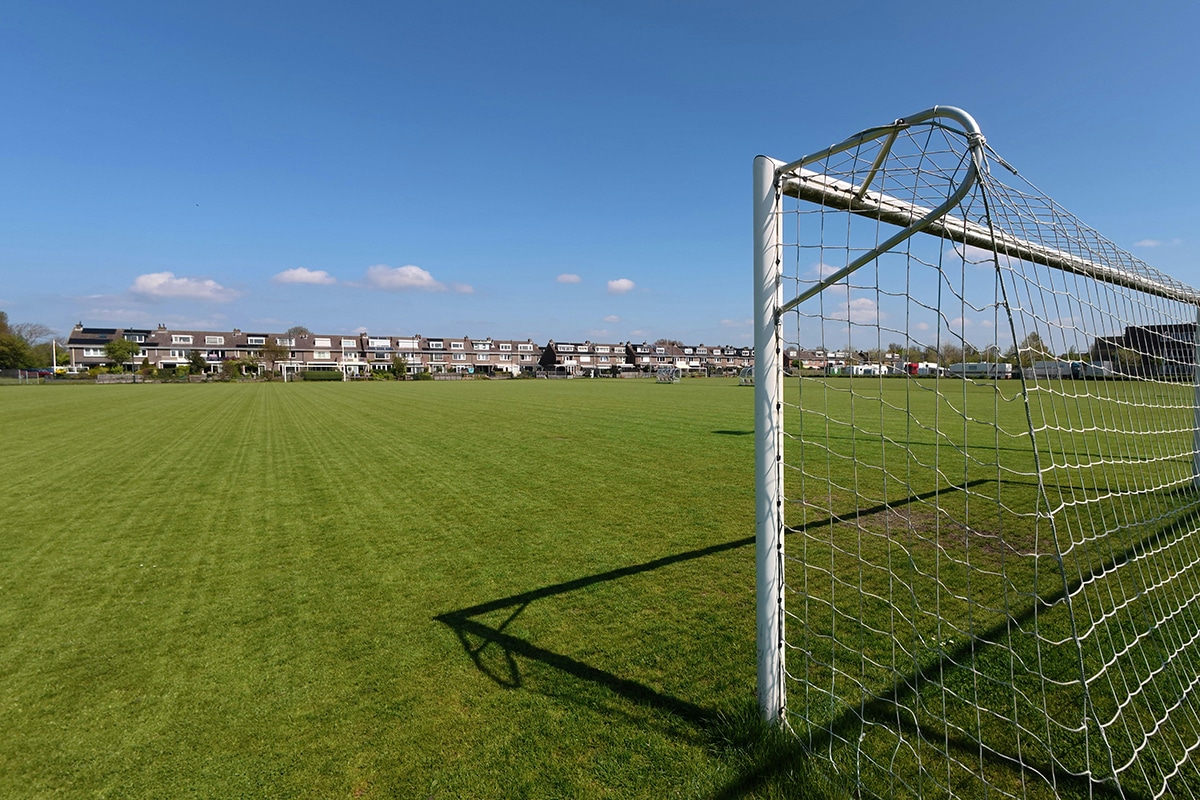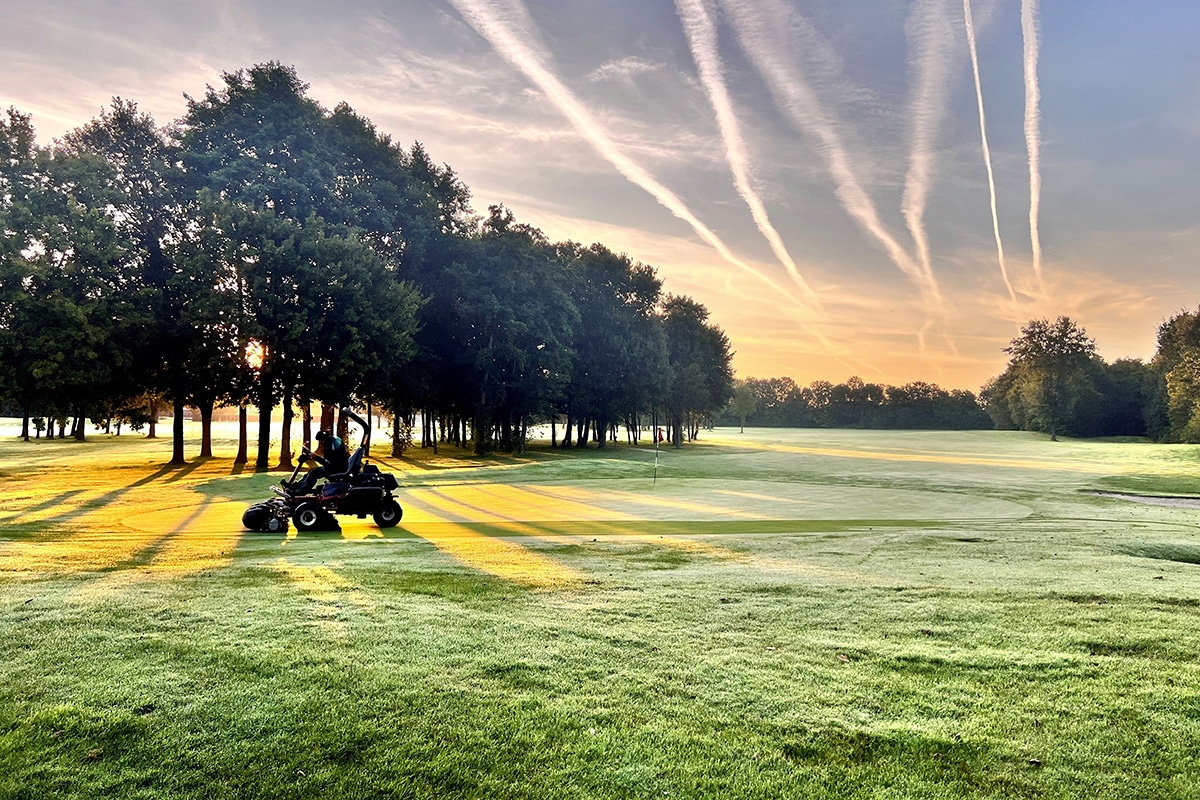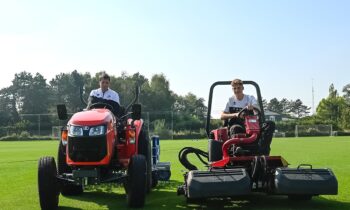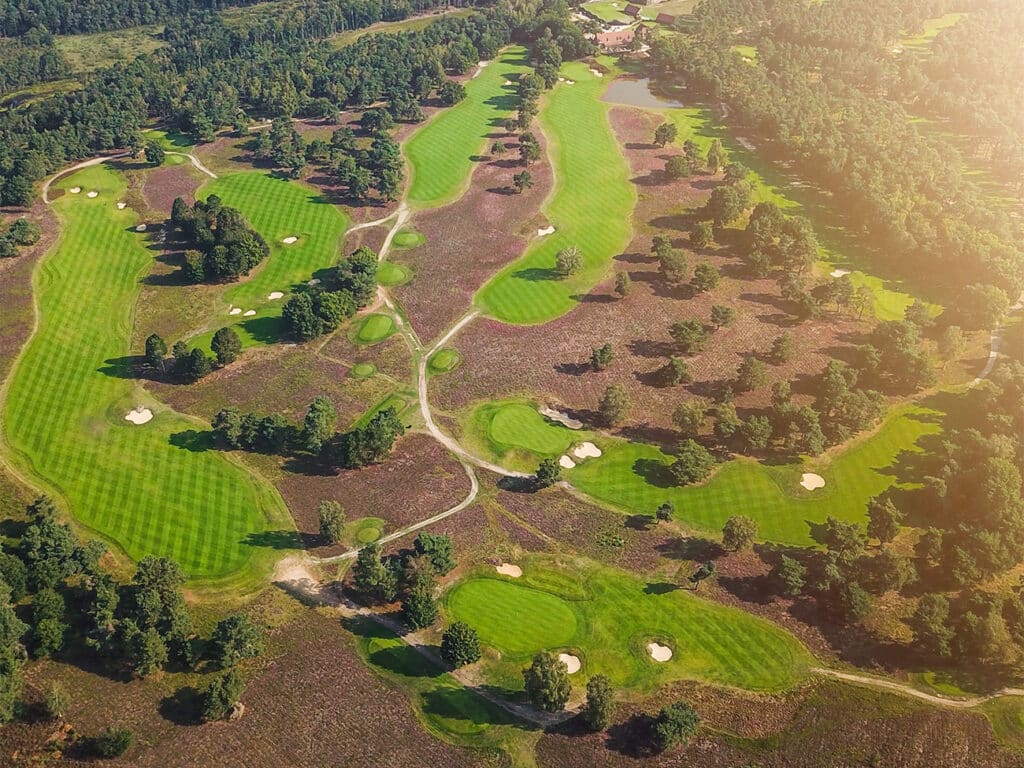
Maintenance at Royal Limburg Golf as early as today for 98% organic
"A completely spotless green is out of date." Davy Driesen, head greenkeeper at Royal Limburg Golf, leaves no room for misunderstanding. No golf club can still guarantee a perfect result under current conditions - with the increasing pressure of the climate on the one hand and the restrictions on fungicides and other maintenance products on the other. Although, of course, that does not mean that perfection is no longer pursued.
Royal Limburg Golf's eighteen holes together cover 65 acres of forest and heathland in Houthalen, Limburg. "Seven holes are located entirely in the heathland; the remaining 11 in the forest area," says head greenkeeper Davy Driesen, who maintains the grounds with assistant Eric Wuyts and eight other greenkeepers.
Biological maintenance requires regularity
Driesen took over the torch from his uncle as head greenkeeper several years ago, but had been with the club since 2000.
"In those 22 years, a lot has changed. For example, fungicides used to be used much more quickly. That's no longer possible now. In recent years we have therefore gradually switched to a largely biological maintenance schedule. Regularity is extremely important for this. You can't just take curative action anymore, but have to try to get ahead of diseases and other problems as much as possible."
"Which doesn't mean you shouldn't think," Wuyts adds. "Both the competition schedule and the weather can already throw a spanner in the works, and of course you also have to keep analyzing the terrain well. Our day therefore invariably starts with a visual analysis of the terrain, but we also regularly take soil samples, for example. Recently, for example, we noticed that the manganese content in the soil was too low. Without measuring, we wouldn't have easily figured that out and the solution would have taken longer."
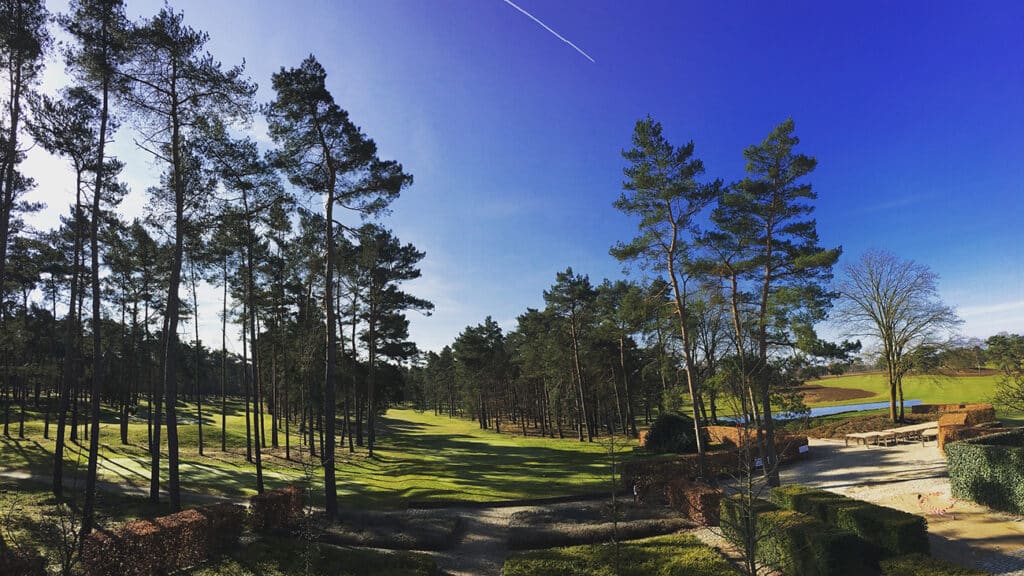
Long-term thinking
However, the transition to organic maintenance was not smooth.
Driesen: "Organic products mainly work in the long term. That means that the soil has to adapt to it. Although we chose a few years ago to let the transition happen gradually, there have been periods when the green looked very bad for a while. That is an inevitable part of the process and you have to accept it."
The long-term effects don't make product selection any easier, either.
Wuyts: "The supply of organic products is enormous, and new ones are added every year. But of course you can't judge the effects right away. We therefore base our product selection on several things: the government's recommendations, the experiences of our colleagues, and our own experiences on some test subjects in the domain."
Heat poses greater challenge than drought
Royal Limburg Golf did get through the dry summers so far.
"This is due in part to a new irrigation system, the use of a good soil conditioner, and the use of natural products such as lava," Driesen said. "That way we can keep our water quota in balance for the time being. Heat, on the other hand, poses a bigger challenge for our fairways and greens, because there's basically not much you can do against burnt spots. The key is to anticipate the heat, especially through thoughtful selection of grasses."
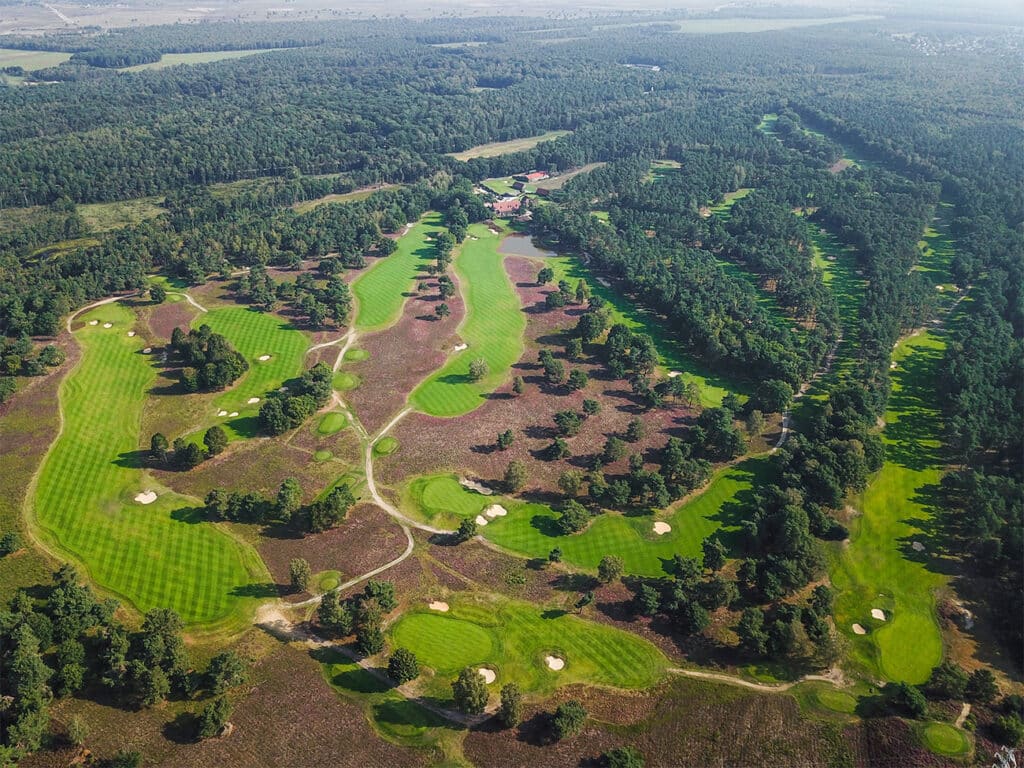
Manual maintenance
For mechanical maintenance, Royal Limburg Golf has extensive and recently renewed machinery.
"Of our main mowers, we always have different ones, each set to a different cutting height," Wuyts says. "That way we don't have to make adjustments every time, we can just switch machines."
"In the heathland area, with the exception of one mowing every two years, the machines are not used," Driesen adds. "After all, there we have to be careful not to damage the heather heads. Especially in the winter period, that still requires a lot of manual maintenance. A tough job, to be sure, but the heather is one of the characteristic elements of our club."

